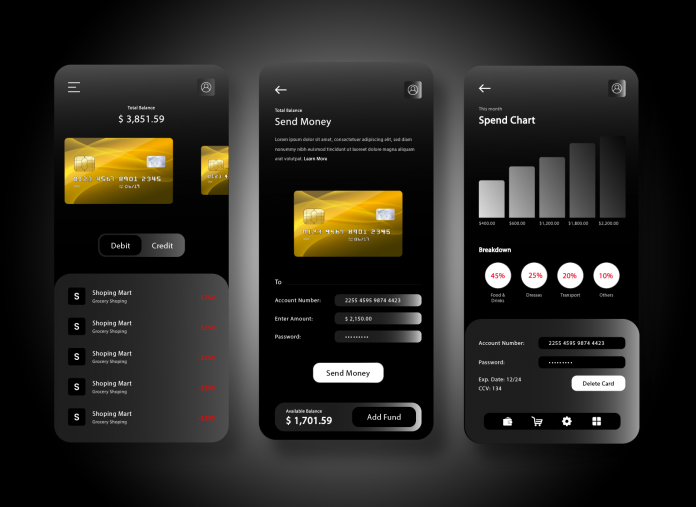What is a Native App?
If you are a tech expert, you might already know what a native app is. For those who are not tech savvy, a native app is an application which is coded through a specified programming language for the smartphone. The languages are different for Androids and iOS. These apps are designed to provide efficient performance ensuring a high threshold of reliability. Native Apps usually have access to the phone’s features such as the contact list and the camera. Sometimes these apps can be used without the need for an internet connection. Nevertheless, Native Apps could be a bit heavy on your budget
So why should you opt for Native Apps if they cost more?
Native Apps Provide Exceptional Performance
Native apps are expensive because they are tied to a single operating system. Thus, if you want your app to work on other platforms, the app developer would need to create duplicate versions. However, such a limitation comes with a great benefit. Since the app is optimized for a single platform, it performs extremely well. Native apps are efficient, exceptionally fast and responsive as they are developed by using core programming language for that platform. The app uses the gadget’s processing speed and users get to navigate seamlessly.
We live in an age where users are becoming restless, and want everything faster than the speed of light. Smart phone’s processing is a major factor that determines its sales. Apps are no different. A user might become weary of the app if they have to wait more than a few seconds for the app to load. So, if you want your users to have a flawless experience, native apps” is the way to go
Native Apps Provide Better Security
The world went into a frenzy when Whatsapp announced its recent Terms and Conditions policy. People were shocked to their last bone when they learned how Whatsapp is going to share their data with third parties. Facebook got into tons of trouble when it was found out that it sells people’s data to various organizations. Security has never been such a big concern as it is now. Native Apps, in contrast, provide a secure operating environment to the users. Here is why? Web apps require browsers and programs such as HTML5 and JavaScript to develop and run. Native Apps does not rely on underlying technologies like CSS or on third party frameworks to work. Furthermore, the cycle for platform releases takes longer than that of the framework. Since the release cycle is longer, the user can easily expect a safer and well tested software.
Developers’ Access to the Device’s Features While Designing the App
Native Apps not only benefit the user, but the developer also gets a plethora of advantages. While designing the application, the developers can take cent percent advantage of the platform’s operating system features and software. It means, the app can access the camera, GPS, address book and the microphone of the device it is installed on. It not only makes for fast execution but also accounts for greater user experience. Native app development, hence, gives the app developer more control over the user experience. It allows the developer to design apps that benefit both parties in the short and the long term.
Native Apps Are User Friendly and Intuitive
One of the most crucial factors in app development is the user experience. User’s satisfaction is the centrifugal force of app development. Native apps are fast, and smooth in terms of user input and user output. Since Native apps are unique to each platform, they do not seem odd, rather appear like an integrated part of the phone. Furthermore, the user experience is extraordinary. Being committed to a single platform, they allow for an enhanced user experience. The application flow is natural as they follow specific guidelines for each platform. These guidelines also omit the learning curve. The user easily becomes familiar with the app without any hindrances.
Scalability of Native Apps is Impeccable
One of the long term goals of developing an app is its ability to manage increased number of users. This could be bug fixes, introduction of new features, among others. Native apps are easier to configure since they need to be compatible with a specific platform. Two native apps are hardly similar. It keeps native apps free from restrictions that they might face in another platform. For instance, an android system might not allow certain features available on iOS. Hence, a native app meant for android would scale keeping the android system and structure in mind.
Native Apps are Easier to Develop
It does not imply that they are a piece of cake. Native apps are platform-specific. It means they are two applications developed in two code bases. This eliminates room for bugs since we are not trying to eliminate two birds with one stone. The developer would not need to rely on cross-platform instruments to fix bugs, or introduce new features. This aspect is particularly helpful when new versions of android and iOS are released. App developers do not have to spend hours weighing out both systems and fixing any bugs. Instead they can focus on the native app separately for each system.
Just a few years ago, cell phones were used only for making expensive calls, and send texts in extreme cases. People still used landline for it was more affordable as compared to mobile phones. But as technology evolved, cell phones made a special place in our hearts, and our houses. They have become synonymous with oxygen. Hardly anyone can live an hour without a cellphone. Businesses heavily rely on cell phones and are constantly developing apps to make interaction with their customers seamless. Native Apps can eradicate multiple discrepancies you would normally find in other apps such as hybrid. They have a user friendly interface, easier to develop and account for easier scalability.

